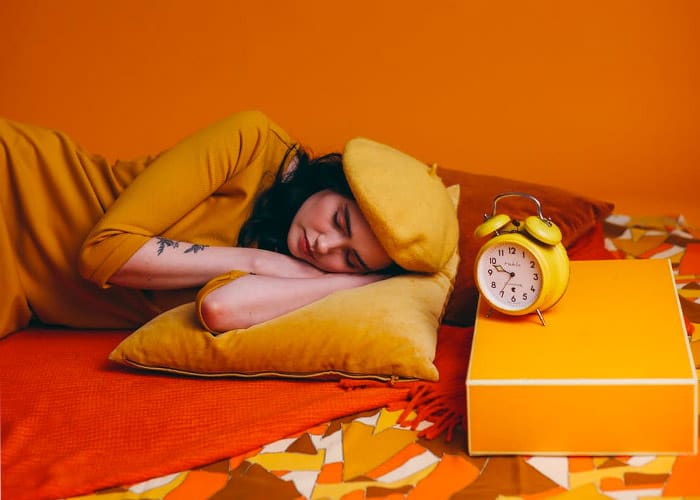In the modern world, we are forced to sacrifice sleep to work, study, or take care of other important matters. To have a productive day tomorrow, it’s also essential to get enough sleep tonight.
You’ve come to the right place if you want to get the full benefits of total sleep in half the time it should take. In this article, we’ll talk about;
- Can sleeping four hours can have the same benefits as sleeping eight
- How to sleep eight hours in four hours
- Sleep deprivation’s effects over time
Is it possible to get the effects of a full sleep while sleeping less?
The NHS recommends most adults get at least six to nine hours of sleep every night. However, studies have shown that up to 33% of adults get less than 6 hours of sleep. Getting less sleep in the long term is not sustainable and will undoubtedly be detrimental to your overall health.
Some fads and arguments forward the idea that you can ‘train’ your body to sleep less. However, there is no scientific evidence that this works. Some people sleep in multiple intervals throughout the day instead of just sleeping in one session.
This is called the polyphasic sleep technique and is driven by the belief that sleeping in this pattern will allow you to sleep more efficiently. However, like the concept that you can train your body to sleep less, no medical evidence supports these claims.
It is always recommended that you attain that six to nine hours of sleep every night when you can. It is incredibly unhealthy to actively choose to sleep less when you have enough time to sleep the amount your body needs.
Despite this, there are things that you can do to maximise the quality of sleep that you can get with the bit of time that you have. While you won’t be able to “hack” sleep by getting the full effects in just one day, there are steps that you can take to ensure that you get the most out of your 4 hours of sleep.
Tips and tricks to sleep 8 hours in just 4 hours
Here are some things you can do to get the benefits of an 8-hour sleep within just 4 hours.
- Sleep early
If you only have four hours of sleep, it is best to get to sleep quickly whenever you can. Being able not to sleep early further cuts down the time that you sleep. Remember, 4 hours of sleep is better than just 3 hours.
There are various things that you can try to sleep early or at the time when you should. First, you can lower the temperature in your room. There is scientific evidence that cold environments reduce the chances of you remaining awake, decreasing rapid eye movement.
If you cannot sleep easily due to thinking of too many things, you can also practice yoga, mindfulness, and meditation. These things help keep anxiety and stress at bay, which are the primary reasons people are unable to sleep early.
- Have a long, uninterrupted sleep
The same logic of maximising the time that you have is beyond this tip. Try to eliminate any possible things or factors that may wake you up in the middle of your sleep, further reducing the amount of sleep you will get. Not to mention the fact that getting interrupted may prevent you from going back to sleep quickly, if at all.
First, make sure to not drink any liquids for at least two hours before bed. This prevents you from waking up mid-sleep to pee. In the same vein, avoid a heavy meal before going to bed as this may cause digestive problems that will further prevent you from sleeping.
In line with this, if you wake up due to external factors such as a restless partner, or humid environments, make sure to take care of these things before going to bed. If your partner’s movements are what causes you to wake up, consider investing in a motion-isolating bed. Moreover, make sure to lower the temperature of the room even before sleeping.
- Exercise daily and eat healthily
There is concrete scientific evidence that getting enough exercise will lead to more efficient sleep results, allowing you to maximise each second of sleep that you get. This will result in more robust results, keeping you energised and less tired during the day. Among a wide range of research, it is conclusive that exercise is a suitable intervention if you are constantly dealing with insufficient sleep or less sleep.
In terms of eating healthily, it is about what you eat and when you eat. Eating large amounts of food before going to sleep or even having a heavy late-night snack is correlated with negative sleep quality attributes. Lastly, eating a substantial amount of macronutrients that your body needs help to provide your body with energy to accomplish your daily tasks.
The effects of sleeping less
Getting a small amount of sleep for extended periods is known as sleep deprivation. Sleep deprivation will significantly affect your emotional, mental, and physical health. This will lead to decreased ability to concentrate, constant mood changes, an increased risk of developing autoimmune diseases such as hypertension and diabetes, and other health problems.
With that being said, it is always better to get 4 hours of sleep than none. Sleeping for at least 90 minutes will allow your body to get at least one sleep cycle. One sleep cycle will at least provide you with some benefits of deep sleep, such as cell regeneration and energy restoration. Moreover, being awake for more than 18 hours has significant repercussions on your mental health and is linked to mental impairments.
You should also know that napping will further worsen the quality of sleep that you get, especially if you suffer from sleep problems such as insomnia. While short, 20-second power naps will serve as “energy boosts” or “rests” within the day, the same concept does not apply for long naps for people who have trouble sleeping.

 Nectar Mattress
Nectar Mattress 


